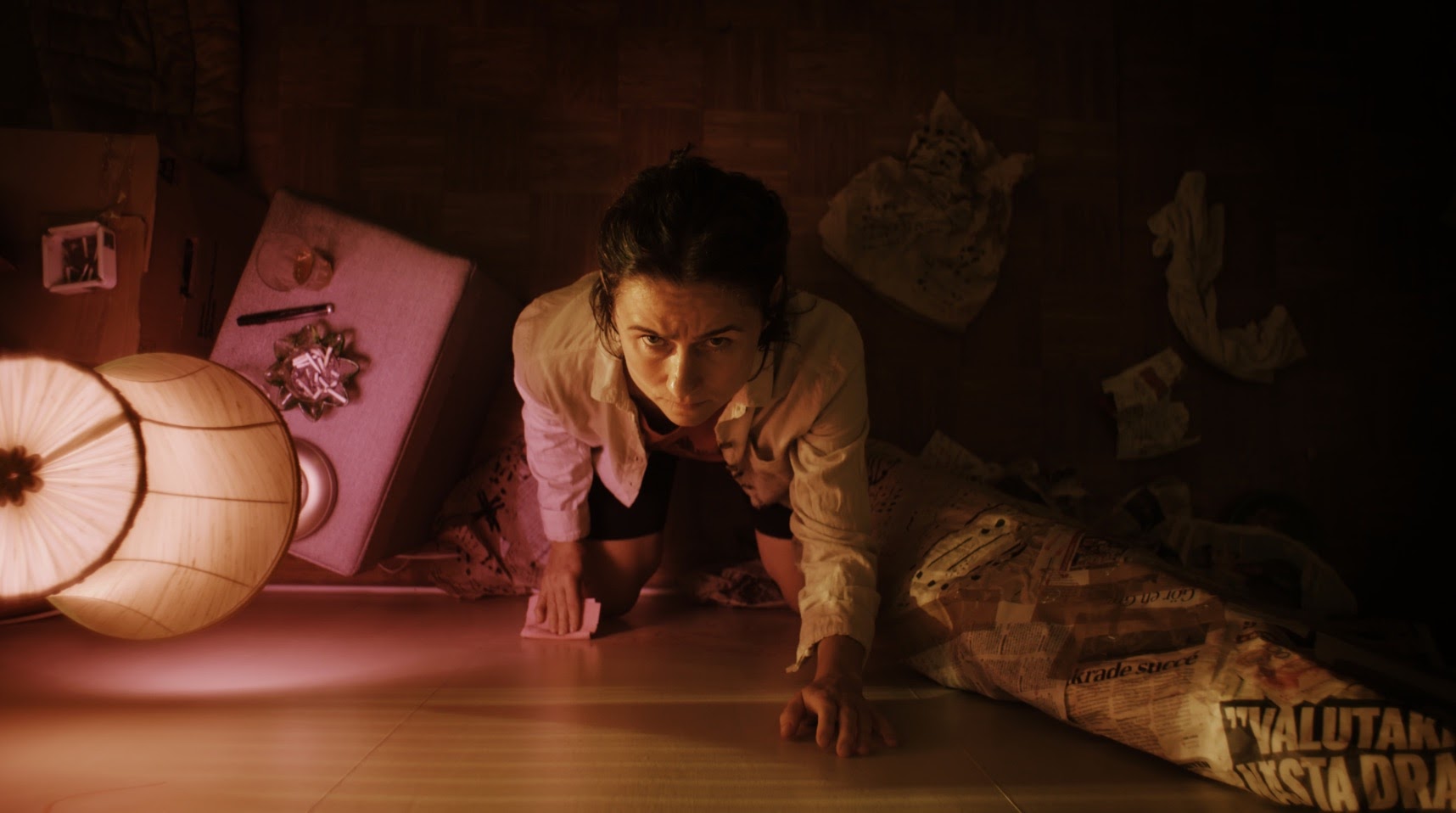

There’s been quite a pushback in recent years against the phenomenon of the “jump scare”, the boo-gotcha moment often used in horror films to evoke an intense emotional response. Sometimes it works, but more often than not it’s just annoying after the fear fades. Frida Kempff’s latest offering Knocking completely rejects the concept of the jump scare, avoiding it altogether in favor of richly textured atmosphere and deeply paranoid horror. Instead of using sudden aural stimuli to pull from the viewer an involuntary response, Kempff instead immerses us into a murky hell of uncertainty in which the horror isn’t a monster or a killer at all, but instead our own (possibly) malfunctioning brains and minds wreaking havoc on our everyday lives.

Knocking is the story of Molly, recently released from a psychiatric ward after experiencing a horrific breakdown. Ready to re-enter the world, Molly moves into a new apartment, makes some new friends, and is apparently ready to start a new chapter in her life. Source of the sound, Molly’s world is slowly consumed by this nocturnal phenomenon until everything spirals down into a surreal mess of uncertainty.
The horror of Knocking is one born of something that people who suffer from mental illness are familiar with, which is the fear of one’s own self and that we might not be as well as we think we are. Molly may be convinced she’s hearing the knocking (which eventually is mingled with the sound of a woman screaming and crying and is joined by visual hallucinations as well), but we the audience aren’t so sure and therein lies the true horror of this film. Yes, Molly apparently being gaslit by her neighbors and police is understandably upsetting. But what adds an extra layer of fear to the experience of watching the film is imagining what it would be like to not be able to trust your own perception of reality, to constantly second guess oneself. We put ourselves in Molly’s shoes and say to ourselves ‘man that would be terrifying if I couldn’t tell if I was imagining something’ and from there springs what is actually scary about this film.

There’s also a tragic sense of secondhand embarrassment in this film, a cringy feeling not entirely unsympathetic to Molly’s plight. People are obviously made uncomfortable by Molly’s behavior and watching her struggle with getting people to believe her and get more and more frustrated as she’s being written off as crazy is extremely uncomfortable, especially in the third act when she begins physically confronting people she thinks are up to no good. The film almost weaponizes our empathy for Molly, using it to make us feel embarrassed for her. It’s not quite transgressive, but there are moments in the film when Cecilia Milocco is so utterly convincing in her portrayal of Molly that it feels rude to continue watching, as if we are seeing the reality of someone who isn’t quite well letting themselves completely off the handle. You feel like you’re a kid on a New York subway and your mom quietly scolds you for staring at the man talking to himself. It’s subtle and simple and very effective. Combine this with the grim reality that maybe Molly isn’t quite ready to re-enter society after her time in a psychiatric ward and we have a deep sadness to handle as well. There are few things worse than feeling like our progress in dealing with mental illness has been erased. It robs us of dignity and makes us feel foolish and useless. There’s a lot of that in Knocking. Not that Molly is being foolish per se, but maybe she isn’t as recovered as her and her doctors believe her to be. It’s not hard to read between the lines and see how the fear of a relapse into harmful behaviors could be used a source of horror in this film.
Knocking might not be for everyone. It’s slow burn approach to creating a feeling of horror could very easily be seen as slow and plodding. But the sense of emotional malaise it succeeds in creating is absolutely worth the wait. Understand that there is no big visual payoff in this film. There is no monster behind a dumpster ready to jump out and scare us to death. Instead, there is a precise and measured approach in depicting someone at their lowest and most vulnerable finding out that things might be getting worse, and the simple request that we watch until the end.
KNOCKING is available on digital and On Demand October 19th.
https://yellowveilpictures.com
Follow KNOCKING on social media:
Facebook: @knockingfilm
Twitter: @knockingfilm
Instagram: @knockingfilm




